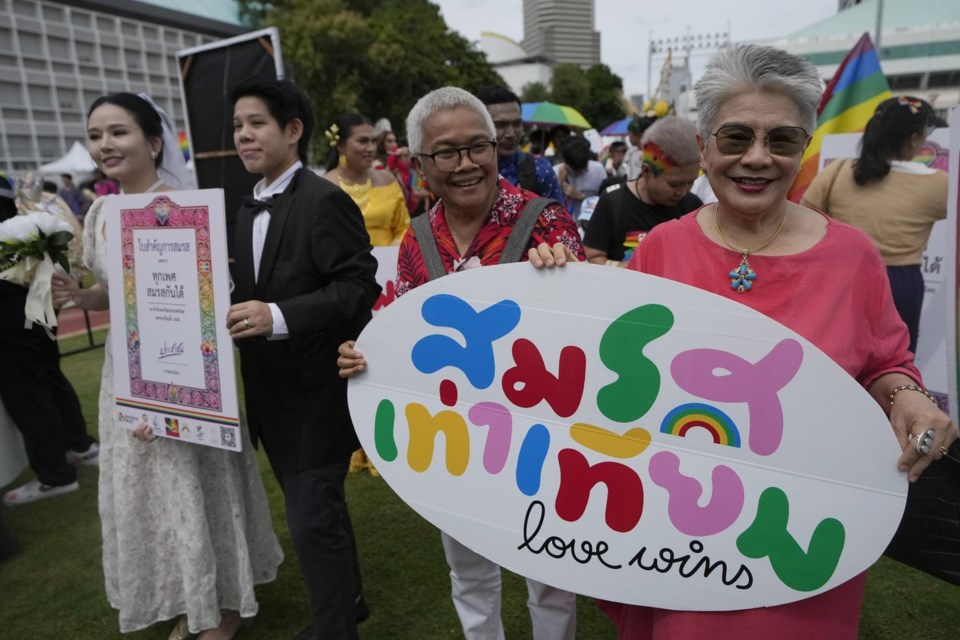BANGKOK (AP) — Thailand’s Senate voted overwhelmingly on Tuesday to approve a marriage equality bill, clearing the last legislative hurdle for the country to become the first in Southeast Asia to enact such a law.
The bill passed its final reading with the approval of 130 of the 152 members of the Senate in attendance, with 4 voting against it and 18 abstaining.
The bill now needs the pro forma endorsement of King Maha Vajiralongkorn, followed by its publication in the Government Gazette, which will set a date within 120 days when it becomes effective.
Thailand will become the third place in Asia, after Taiwan and Nepal, to allow same-sex marriage. The marriage equality bill, which grants full legal, financial and medical rights for marriage partners of any gender, sailed through the House of Representatives right before the previous parliamentary session concluded in April with the approval of 400 of the 415 members who were present.
The timing of the Senate's vote on Tuesday, the first day of the current parliamentary session, suggested the urgency in getting the bill passed. The legislation will amend the country's Civil and Commercial Code to replace gender-specific words such as “men and women” with gender-neutral words such as “individual.”
But it was not approved without a hitch. One member of the Senate, retired army Gen. Worapong Sa-nganet, argued that the gender-specific terms should still be included in the law along with the gender-neutral terms. He said excluding them would be a severe “subversion of the institution of family” in Thailand.
The government, confident of the bill's passage, announced several days ago it would host a celebration of the occasion later Tuesday at Government House.
Passing the law is a “a triumph for justice and human rights,” said Mookdapa Yangyuenpradorn of the human rights organization Fortify Rights.
“The Thai government must now focus on ensuring swift and effective implementation of this law to safeguard LGBTI+ rights,” she said. “Marriage equality is fundamental to human dignity, and it is essential that Thailand protects these rights without delay or discrimination.”
Thailand has a reputation for acceptance and inclusivity but has struggled for decades to pass a marriage equality law. Thai society largely holds conservative values, and members of the LGBTQ+ community say they face discrimination in everyday life.
The government and state agencies are also historically conservative, and advocates for gender equality have had a hard time pushing lawmakers and civil servants to accept change.
The government led by the Pheu Thai party, which took office last year, has made marriage equality one of its main goals. It made a major effort to identify itself with the annual Bangkok Pride parade earlier this month, in which thousands of people celebrated in one of Bangkok’s busiest commercial districts.
The Associated Press




